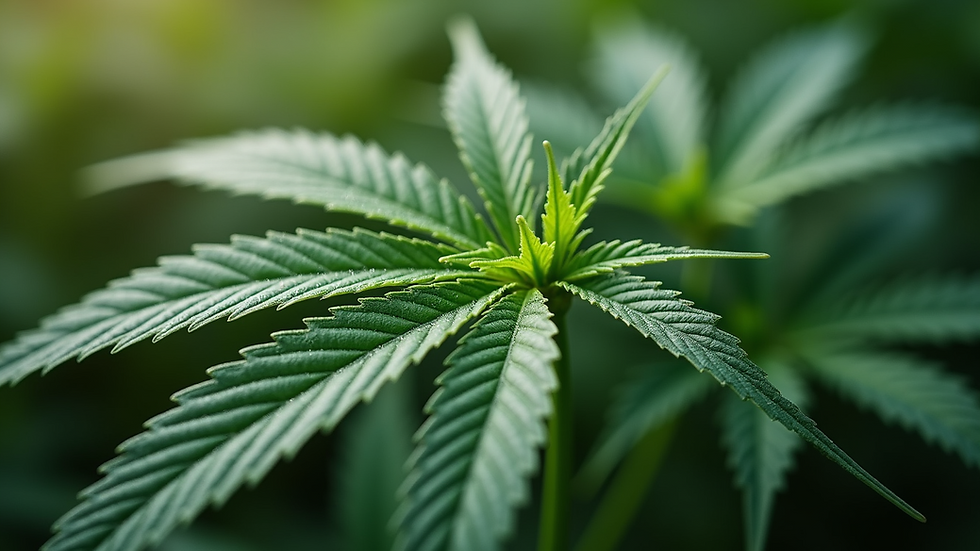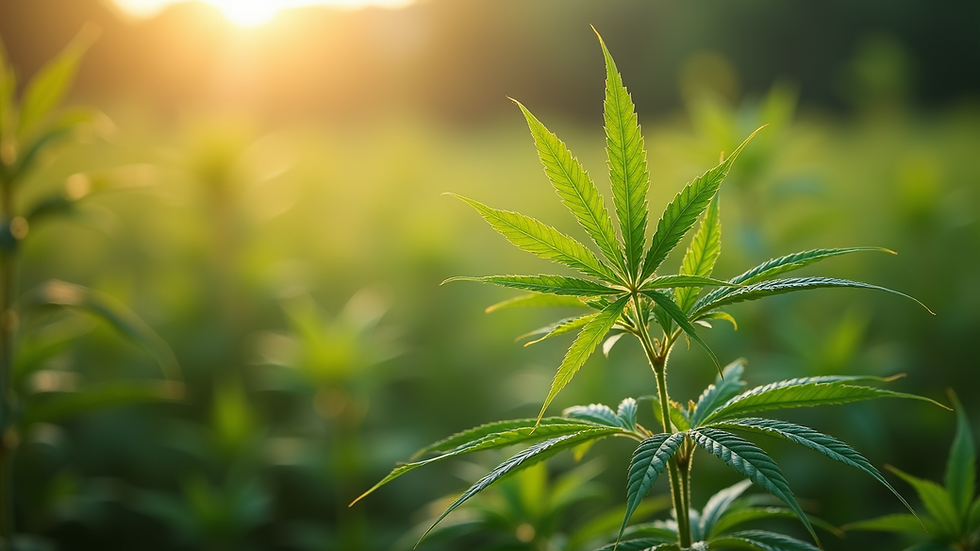How the Farm Bill Shapes Cannabis and Hemp Legislation
- Andrew Mann
- Jul 31, 2025
- 4 min read
The Farm Bill is a powerful piece of legislation that influences many aspects of agriculture in the United States. Among its many impacts, it plays a crucial role in shaping the legal landscape for cannabis and hemp. Understanding how this legislation works is essential for anyone interested in the evolving cannabis industry, hemp farming, or related businesses. This article explores the key ways the Farm Bill affects cannabis and hemp laws, providing clear explanations and practical insights.
Understanding Farm Bill Legislation and Its Impact on Hemp
Farm Bill legislation is a comprehensive law passed every five years or so, covering a wide range of agricultural and food programs. One of the most significant changes in recent years has been the inclusion of hemp as a legal crop. The 2018 Farm Bill, in particular, marked a turning point by removing hemp from the Controlled Substances Act, effectively legalizing its cultivation nationwide under certain conditions.
Hemp is defined as cannabis plants containing less than 0.3% THC by dry weight. This distinction is critical because THC is the psychoactive compound in cannabis that causes a "high." By setting this limit, the Farm Bill allows farmers to grow hemp legally while keeping marijuana, which has higher THC levels, regulated separately.
This legislation has opened the door for a booming hemp industry, including products like CBD oils, textiles, and food supplements. However, it also requires strict compliance with testing and reporting to ensure THC levels remain within legal limits.

How Farm Bill Legislation Influences Cannabis Policy
While the Farm Bill primarily addresses hemp, it indirectly affects cannabis policy as well. Marijuana remains federally illegal, but the Farm Bill's legalization of hemp has created a complex legal environment. States have their own laws regarding cannabis, ranging from full legalization to strict prohibition.
The Farm Bill's clear definition of hemp versus marijuana helps law enforcement and regulators distinguish between the two. This clarity benefits farmers, businesses, and consumers by reducing confusion and legal risks. However, it also means that cannabis with THC levels above 0.3% is still subject to federal restrictions.
For businesses operating in the cannabis space, understanding the nuances of Farm Bill legislation is crucial. For example, companies producing CBD products must ensure their source hemp complies with the law to avoid federal penalties. Additionally, the Farm Bill has encouraged research into hemp's potential uses, further expanding the market.

Will the new Farm Bill make THCA illegal?
One of the emerging questions in cannabis legislation is the status of THCA (tetrahydrocannabinolic acid), a non-psychoactive precursor to THC found in raw cannabis plants. THCA itself does not cause intoxication but converts to THC when heated.
The new Farm Bill discussions have raised concerns about whether THCA might be classified as illegal due to its connection to THC. Currently, the law focuses on THC content, not THCA, but some regulators worry that high THCA levels could be problematic.
This uncertainty creates challenges for producers and consumers of raw cannabis products, such as juices or tinctures, which may contain THCA. Legal experts recommend closely monitoring legislative updates and consulting with regulatory bodies to ensure compliance.
In practical terms, businesses should test their products for both THC and THCA levels and maintain thorough documentation. This proactive approach can help avoid legal complications as the regulatory landscape evolves.

Practical Recommendations for Navigating Farm Bill Cannabis Laws
Navigating the complex intersection of Farm Bill legislation and cannabis laws requires careful planning and knowledge. Here are some actionable recommendations for farmers, businesses, and consumers:
Stay Informed: Laws and regulations can change rapidly. Regularly check official sources and trusted industry news to stay updated.
Test Products Thoroughly: Ensure all hemp and cannabis products comply with THC limits. Use certified labs for accurate testing.
Maintain Documentation: Keep detailed records of cultivation, testing, and sales to demonstrate compliance if audited.
Understand State Laws: Federal law is one aspect; state laws vary widely. Know the rules in your state and any states where you do business.
Consult Legal Experts: When in doubt, seek advice from attorneys specializing in cannabis law to avoid costly mistakes.
Educate Consumers: Provide clear information about product contents, especially regarding THC and THCA levels, to build trust.
By following these steps, stakeholders can better navigate the evolving legal environment shaped by Farm Bill legislation.
The Future of Cannabis and Hemp Under Farm Bill Legislation
The Farm Bill will continue to play a pivotal role in shaping the future of cannabis and hemp in the United States. As public opinion shifts and more states consider legalization, federal laws may evolve to reflect these changes.
One area to watch is the potential for expanded hemp research and development, which could lead to new products and industries. Additionally, ongoing debates about THC limits and the status of compounds like THCA may result in updated regulations.
For now, the Farm Bill provides a foundation for legal hemp cultivation and a framework for distinguishing hemp from marijuana. Businesses and consumers alike should remain vigilant and adaptable as this legal landscape develops.
For more detailed insights on how the Farm Bill affects cannabis and hemp, including the latest updates on farm bill thc, visit trusted industry blogs and resources.
Understanding the nuances of Farm Bill legislation is essential for anyone involved in the cannabis and hemp industries. By staying informed and proactive, you can navigate this complex legal terrain and take advantage of the opportunities it presents.



Comments